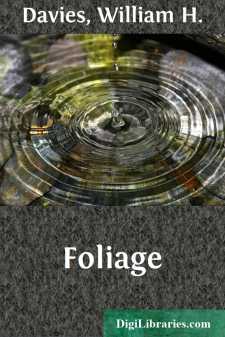Categories
- Antiques & Collectibles 13
- Architecture 36
- Art 48
- Bibles 22
- Biography & Autobiography 816
- Body, Mind & Spirit 145
- Business & Economics 28
- Children's Books 17
- Children's Fiction 14
- Computers 4
- Cooking 94
- Crafts & Hobbies 4
- Drama 346
- Education 58
- Family & Relationships 59
- Fiction 11834
- Foreign Language Study 3
- Games 19
- Gardening 17
- Health & Fitness 34
- History 1378
- House & Home 1
- Humor 147
- Juvenile Fiction 1873
- Juvenile Nonfiction 202
- Language Arts & Disciplines 89
- Law 16
- Literary Collections 686
- Literary Criticism 179
- Mathematics 13
- Medical 41
- Music 40
- Nature 179
- Non-Classifiable 1768
- Performing Arts 7
- Periodicals 1453
- Philosophy 66
- Photography 2
- Poetry 897
- Political Science 203
- Psychology 45
- Reference 154
- Religion 516
- Science 126
- Self-Help 85
- Social Science 82
- Sports & Recreation 34
- Study Aids 3
- Technology & Engineering 59
- Transportation 23
- Travel 463
- True Crime 29
Sort by:
by:
William Le Queux
CHAPTER I CURIOSITY IS AROUSED "I confess I'd like to know somethin' more about him." "Where did you run across him first?" "I didn't run across him; he ran across me, and in rather a curious way. We live in Linden Gardens now, you know. Several of the houses there are almost exactly alike, and about a month ago, at a dinner party we were givin', a young man was...
more...
CHAPTER I. If you take the turn to the left, after you pass the lyke-gate at Combehurst Church, you will come to the wooden bridge over the brook; keep along the field-path which mounts higher and higher, and, in half a mile or so, you will be in a breezy upland field, almost large enough to be called a down, where sheep pasture on the short, fine, elastic turf. You look down on Combehurst and its...
more...
THUNDERSTORMS My mind has thunderstorms, That brood for heavy hours:Until they rain me words, My thoughts are drooping flowersAnd sulking, silent birds. Yet come, dark thunderstorms, And brood your heavy hours;For when you rain me words, My thoughts are dancing flowersAnd joyful singing birds. Sometimes I hear fine ladies sing, Sometimes I smoke and drink with men;Sometimes I play at...
more...
Pleasant is a rainy winter's day, within doors! The best study for such a day, or the best amusement,âcall it which you will,âis a book of travels, describing scenes the most unlike that sombre one, which is mistily presented through the windows. I have experienced, that fancy is then most successful in imparting distinct shapes and vivid colors to the objects which the author has spread...
more...
by:
Joseph A. Seiss
LUTHER AND THE REFORMATION. A rare spectacle has been spreading itself before the face of heaven during these last months. Millions of people, of many nations and languages, on both sides of the ocean, simultaneously engaged in celebrating the birth of a mere man, four hundred years after he was born, is an unwonted scene in our world. Unprompted by any voice of authority, unconstrained by any...
more...
"Well, sir," said Mr. Dooley, "I see they've been holdin' a Divoorce Congress." "What's that?" asked Mr. Hennessy. "Ye wudden't know," said Mr. Dooley. "Divoorce is th' on'y luxury supplied be th' law that we don't injye in Ar-rchey Road. Up here whin a marrid couple get to th' pint where 'tis impossible f'r thim...
more...
by:
Thomas Carlyle
Chapter I.—SANS-SOUCI. Friedrich has now climbed the heights, and sees himself on the upper table-land of Victory and Success; his desperate life-and-death struggles triumphantly ended. What may be ahead, nobody knows; but here is fair outlook that his enemies and Austria itself have had enough of him. No wringing of his Silesia from this "bad Man." Not to be overset, this one, by never such...
more...
PREFACE. A readable book should instruct, entertain and amuse. The author, outside of the historical interest of this little book, has aimed to cover a broad-enough field for all classes of readers to find some nourishing food—at least in the way of variety and shifting scenes—from the standpoint of a young private. And in order to understand his viewpoint, a brief sketch of the author is...
more...
by:
Mark Twain
Chapter I. The birth of the Prince and the Pauper. In the ancient city of London, on a certain autumn day in the second quarter of the sixteenth century, a boy was born to a poor family of the name of Canty, who did not want him. On the same day another English child was born to a rich family of the name of Tudor, who did want him. All England wanted him too. England had so longed for him, and...
more...
by:
John Wesley Judd
CHAPTER I INTRODUCTORY When the history of the Nineteenth Century—'the Wonderful Century,' as it has, not inaptly, been called—comes to be written, a foremost place must be assigned to that great movement by which evolution has become the dominant factor in scientific progress, while its influence has been felt in every sphere of human speculation and effort. At the beginning of the...
more...











